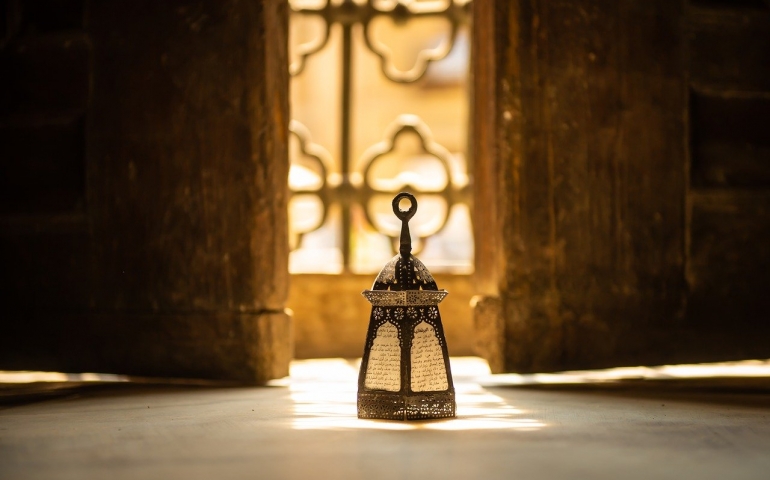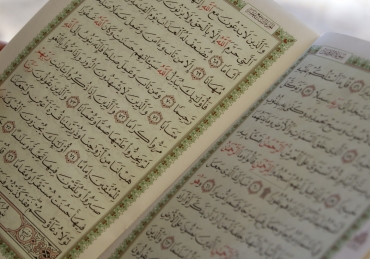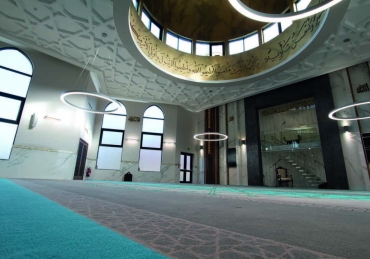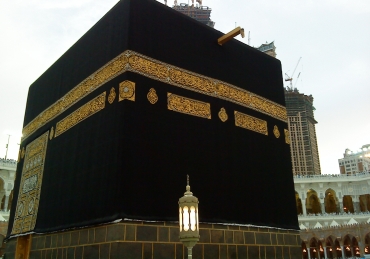2021 Ramadan and Eid Guidelines to Keep You, Your Family and Masjid Safe
Question
Last year, you issued a document titled ‘Covid-19 and guidelines for Ramadan and Eid’. Please can you kindly issue some similar guidelines for this year particularly in relation to Tarāwīḥ Ṣalāh and whether Covid-19 injections and PCR tests nullify the fast. There are currently mixed messages regarding Tarāwīḥ Ṣalāh and some Masjids are thinking of cancelling Tarāwīḥ Ṣalāh. What is your advice in relation to this? Likewise, should the elderly and young be prevented from coming to the Masjid?
بسم الله الرحمن الرحیم
Answer
Introduction
This answer sets out some general guidelines for Muslims residing in England which will also address your specific queries. They take into account the following:
- Islamic framework of principles, teachings and values to make sound judgment.
- The Regulations (law) and Government Guidance relating to Covid-19. Please note that Regulations differ in the four Home Nations. Those responsible for managing Masjids should read the Regulations and Government Guidance accordingly.
- The health risks posed by Covid-19 and its various variants.
- The importance of learning how to cope with and manage these risks safely.
- The increase in our knowledge of Covid-19 and the progress in vaccination. Over 23 million people including the vast majority of older people and those deemed high-risk have received the first dose of the vaccine. Many have also received their second dose whilst many others will receive it before and during Ramadan.
- The substantial decrease in Covid-19 related deaths, hospital admissions and infection rate in recent weeks.
Please continue to follow any updated Regulations (law) and Government Guidance and continue to implement reasonable precautionary measures to ensure Masjids are as safe as possible in these challenging times.
For further religious advice and guidance particularly in relation to any individual circumstances, please consult your local scholars.
Fasting (Ṣawm) and Ifṭār in the Masjid
- Fasting in the month of Ramadan is obligatory and therefore healthy individuals are required to fast between dawn and sunset.
- Reasonable precautionary measures to facilitate Ifṭār at the Masjid safely include:
- Worshippers bring their own bottle of water and dates into the Masjid for their own personal use or among their household, so that they can complete their fast and perform Maghrib Ṣalāh thereafter.
- Avoid sharing any dates unless necessary to do so. The Government Guidance states, “Where food or drink (‘consumables’) are essential to the act of worship, they can be used, however the sharing of food should be avoided, as should the use of communal vessels.”
- Worshippers should be able to fill their water bottles from the Masjid water taps if they need to do so.
- If Masjids decide to distribute water bottles and dates to worshippers, reasonable precautionary measures should be in place such as using gloves.
Covid-19 Vaccines and Tests whilst Fasting
- Covid-19 vaccine injections do not nullify the fast, as outlined in an earlier Fatwa.
- PCR tests and Lateral Flow tests do not nullify the fast, as detailed in an earlier Fatwa.
Five Daily Ṣalāhs and Masjids
- Performing Ṣalāh in congregation at the Masjid is all the more important and rewarding in Ramadan. Therefore, worshippers are encouraged to make every attempt to perform the five Ṣalāh at the Masjid daily.
- Elderly people and children should be welcomed to the Masjid if they decide to attend. The decision to attend the Masjid should be left to individuals who can decide based on their medical circumstances and personal choice. Blanket age restrictions should be avoided.
- Reasonable precautionary measures to facilitate congregational Ṣalāh safely include:
- Organising multiple congregational prayers to safely accommodate all the worshippers of the locality.
- In respect of social distancing, the Government Guidance states, “adhering to social distancing, meaning people should be 2 metres apart or more than 1 metre apart as well as taking extra steps to stay safe (such as wearing face coverings) to reduce the risk of transmission.” Therefore, 1 metre distancing with extra steps should be adopted to accommodate as many people and avoid congestion and queues at the entrance (For further details, refer to our earlier answer).
- Members of one household and one’s support bubble are not required to socially distance from each other. Therefore, household members can stand together in Ṣalāh to accommodate more worshippers. This can be particularly useful for Maghrib Ṣalāh.
- Masjids should remain open for as many hours as possible similar to large retail stores so that worshippers can attend at different times and thereby reduce the risks of congestion. It is recommended as a minimum that Masjids remain open between ʿAṣr Ṣalāh until the end of Tarāwīḥ Ṣalāh.
- Ensure proper ventilation and the circulation of air.
- Worshippers are strongly encouraged to perform ablution at home. However, toilet facilities should be accessible according to law subject to reasonable precautions such as regular cleaning. If someone requires the toilet or ablution for example during Tarāwīḥ Ṣalāh or whilst waiting for Maghrib Ṣalāh, they should not have to return home. The Government Guidance states, “Toilets inside or linked to places of worship should be kept open and carefully managed to reduce the risk of transmission of COVID-19.”
- Masjid Imams should deliver short and concise sermons after some of the congregational prayers. Worshippers should remain in their position during the sermon and also whilst performing nafl (supererogatory) prayers and reciting the Qurʾān.
- Individuals required to isolate at home should perform Ṣalāh at home and take note of our guidelines from last year.
Tarāwīḥ Ṣalāh
- Tarāwīḥ Ṣalāh is an emphasised Sunnah. Therefore, Masjids should organise 20 rakʿat (units) Tarāwīḥ Ṣalāh and complete the recitation of the entire Qurʾān on 29 Ramaḍān in a Covid-19 safe environment.
- Reasonable precautionary measures to facilitate Tarāwīḥ Ṣalāh safely include:
- If a Masjid cannot accommodate all the local worshippers due to social distancing measures, multiple Tarāwīḥ Ṣalāh should be considered, for example one at 10pm and another at 12am.
- Masjids which are considering cancelling Tarāwīḥ Ṣalāh are kindly requested to re-consider their decision because this is likely to increase the number of worshippers in neighbouring Masjids.
- Ḥuffāẓ (those who have memorised the Qurʾān) not leading in the Masjid are strongly encouraged to perform and lead Tarāwīḥ Ṣalāh at home with their household.
- If someone is isolating or cannot join the Tarāwīḥ Ṣalāh in the Masjid, they should perform it individually or in congregation with household members at home. If they are not ḥāfiẓ, they should recite from the chapters they have memorised.
- Using a community hall and similar venues will spread the worshippers to other venues and allow for more worshippers to perform Tarāwīḥ Ṣalāh. The Government Guidance states, “The guidance also covers premises when being used for religious gatherings, even when their primary purpose is not for religious gatherings, such as a community centre.”
Joining congregational Ṣalāh via the internet, TV or receiver
- Islamic teachings even during a pandemic do not permit joining a congregational Ṣalāh of Makkah or Madīnah or the local Masjid via the internet, TV or receiver system for any Ṣalāh including Tarāwīḥ. Iqtidāʾ (following the Imam) is only valid if a person is physically present. The fact that a person can observe the proceedings of a congregation virtually from the confines of their home does not validate iqtidāʾ.
- There is no harm in listening to the Tarāwīḥ prayers via the internet or the Masjid receiver system. Listening to a verse of Sajdah al-Tilāwah via any form of live broadcast necessitates Sajdah al-Tilāwah on the listener.
Recitation of Qurʾān in Masjids
- Ramadan is the month of Qurʾān. Therefore, it is recommended to read as much Qurʾān in the Masjid and at home.
- Reasonable precautionary measures to facilitate Qurʾān recitation in the Masjids safely include:
- Worshippers bring their own standard or pocket-size Qurʾāns to the Masjid.
- The Qurʾān can also be recited on the mobile phones. Worshippers should keep their mobile phone on silent in the Masjid to avoid disturbing others. It is also recommended to switch off email notifications and message alerts to avoid any distractions whilst reciting the Qurʾān.
- Copies of the Qurʾān should be made available for worshippers who require a copy. The following Government guidance in this regard should be followed, “In circumstances where worshippers cannot bring their own books, places of worship should keep a selection of clean books for individuals to use. Clean books should be quarantined for 48 hours since their previous use and should be quarantined for 48 hours again after use.”
- For those reciting the Qurʾān on their mobile phones, when the Qurʾān is visible on the screen, ablution is required to touch the text of the Qurʾān on the screen. As far as touching or holding other parts of the device is concerned, this is permissible. Similarly, if the Qurʾān is visible just on the middle or one part of the screen, the sides of the screen or the other parts of the screen can be touched, although it is preferred to be in the state of ablution.
Iʿtikāf
- Iʿtikāf is an emphasised Sunnah during the final ten days of Ramadan. Therefore, this should be arranged in Masjids. (Government advisors have confirmed on 23 March 2021 that overnight stay in a mosque is compliant as part of worship).
- The reasonable precautionary measures to facilitate Iʿtikāf safely include:
- Advance planning and updating risks assessments.
- Selecting a limited number of people.
- Avoiding sharing of food and communal utensils, as mentioned above.
- There is an expected change in Regulations on or around 12 April 2021. Its provisions should be studied and acted upon.
Zakat and Masjid Collections
- Ramadan is the month of charity. In addition to Zakat, donate optional (nafl) charity as much as you can. Charity removes calamities and extinguishes the anger of Allah Almighty.
- Masjids that have not resumed donation collections are recommended to resume donations collections in a Covid-safe manner.
- The reasonable precautionary measures to facilitate this safely include:
- Training volunteers to handle donations safely.
- The use of three sets of donation boxes; each set can be used daily and thereby the notes and coins can be handled and processed after 48 hours.
- Contactless or card payments.
- If your local Masjid does not resume donation collections, you must continue to respect your Zakat anniversary date and discharge your Zakat if it falls in Ramadan via online and other available methods.
Ṣadaqat al-Fiṭr
- Ṣadaqat al-Fiṭr can be given any time until Eid Ṣalāh. As the purpose of Ṣadaqat al-Fiṭr includes supporting the poor, it is strongly recommended to donate it in advance of Eid day so that it reaches the poor in time.
- Based on our calculations, the value of the stipulated amount of wheat for Ṣadaqat al-Fiṭr is £3.50 (refer to this link for further details). Those who are able to afford the higher values based on barley, raisins or dates should consider donating more so that the poor benefit.
Eid Ṣalāh
- Eid Ṣalāh should be arranged in the Masjids similar to Jumuʿah Ṣalāh.
- The reasonable precautionary measures to facilitate Eid Ṣalāh safely include:
- Multiple Eid Ṣalāh in the Masjids to accommodate for everyone in the locality.
- The use of Masjid car parks to increase capacity.
- Outdoors Eid Ṣalāh. This is not only safer, but is also Sunnah. It would also reduce congestion at the Masjid.
- If a person is in isolation at home on Eid day, he can can perform two or four rakʿat nafl Ṣalāh individually without any extra takbīrs if he wishes to do so.
May Allah Almighty protect us all and shower mercy upon the Ummah.
Allah knows best
Yusuf Shabbir
27 Rajab 1442 / 11 March 2021
Approved by: Mufti Shabbir Ahmed and Mufti Muhammad Tahir
(For other Q&As, Fatwas & articles regarding Covid-19, click here)







